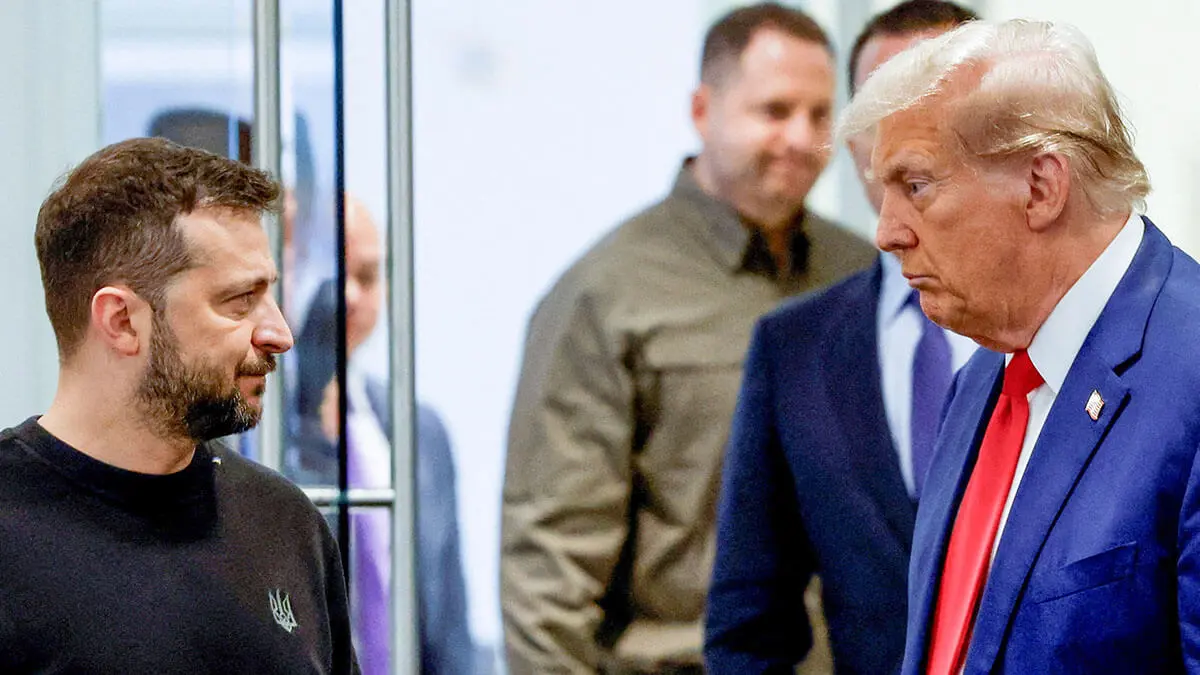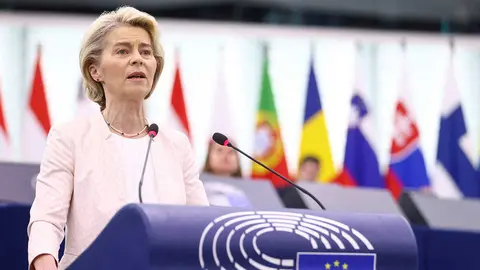Some reflections after the US elections

The election of Trump as the next president of the United States is said to evoke a reconnection with the reality of a country tired of wars overseas, excessive immigration and ‘rehearsed’ political correctness as political behaviour. It is also said to have been caused in no small part, unsurprisingly, by the failures of President Biden and his Vice President, Ms Harris. Trump's victory has been forged, in large part, by a repudiation of an administration that, while passing extensive pandemic relief, social spending and climate change programmes, was hit by sky-high inflation and illegal immigration.
Trump's victory emerges from an offer basically made up of: deregulation, isolationism and authoritarian leadership that, according to references, is unprecedented in the modern history of the United States. For his second term, the US president-elect inherits from his predecessor the title of ‘supporter’ of Ukraine, although he has been sceptical about continuing aid to Kiev, which does not prevent him from articulating other actions.
Trump is likely to take office with a sceptical attitude that incorporates open hostility towards continued US support for Ukraine and announces an intention to end the war immediately, though without saying how. It is unclear how Trump's hypothetical initiatives would fit into the context of the current ceasefire negotiations, but his pledge to end the war quickly has been qualified by Vice President Vance, in that Kiev would have to admit to ceding territory occupied by Russia after nearly three years of war.
Trump's transactional vision and aversion to the traditional instruments of American power will shape Washington's foreign policy. His ‘America First’ slogan includes a commitment to tightening trade barriers and practising industrial protectionism, primarily through tariffs, justifying it on the grounds that free trade has harmed American workers. This orientation also implies scepticism about Washington's global commitment to supporting a liberal world order. It is proclaimed by Trump's supporters that ‘USA first’ does not mean isolationism, as the previous term in office saw US relations strengthened in the Indo-Pacific, with Israel and the Gulf States.
Trump appears to be one of those who are not guided by a particular doctrine, but rather, as his former national security adviser Robert O'Brien argues, are driven by ‘their own intuition and traditional American principles, considered more profound than the globalist orthodoxies of recent decades’.
The most likely area of application of Trump's populist reflexes will be in transatlantic relations, more specifically Washington's relations with its European allies and the war in Ukraine. Trump has long complained about ‘opportunistic allies’ who ‘don't pay their fair share’ and has argued forcefully for all NATO countries to meet their obligations to spend 2 per cent of their GDP on defence. He has threatened on numerous occasions to withdraw the US from NATO, and a second term could lead to further tensions within the Alliance.
Donald Trump's sweeping victory in the US presidential election has therefore provoked the expected mixed reactions in Europe about the consequences for the EU. One senior official involved in preparing Brussels' course of action for a possible Trump presidency expressed his fears to the Financial Times: “On trade, things will be bad..., on Ukraine, serious problems”.
Admittedly, Trump may act completely differently than he did during his first term, but the burden of proof lies with the scaremongers. It is recalled that, in 2018, Trump declared that the European Union would go to Washington to negotiate a trade deal and that he had an idea: that ‘both the United States and the EU eliminate all tariffs, barriers and subsidies. That would be called free markets and fair trade. We expect them to do that, we're ready, but they won't!’. On tariffs, Trump is very ‘transactional’. The trade deal he pushed through with Mexico and Canada in his first term was similar to the one he replaced.
If Trump's announced strategy somehow works, by threatening to put new tariffs on imports from the EU, it forces the EU to reduce its tariffs on goods from the US, even though in theory the EU has to legally offer the same rates to other World Trade Organisation members. This is supposedly an optimistic reading of what might happen next, but freer trade, at least within the pro-Western bloc, is not really out of the question under the Trump administration, as long as consumers benefit.
Restricting trade with China will severely affect Europe and especially Germany. Therefore, it is to be hoped that Trump will reach an agreement with Chinese leader Xi before Europe is pushed into a trade war with China. If Trump does not go ahead with tariffs, it is very likely that the EU will do so instead. A ‘truce clause’ on the EU's own retaliatory tariffs expires in March 2025. Eurocrats delusionally believe this is a tool to bring Trump to the negotiating table. This is a dangerous scenario, which may backfire, as the new Trump administration might be less aware of the EU's capacity for self-harm.
The EU can take the approach of avoiding retaliatory tariffs by seeking alternative deals that might tempt Trump and deepen free trade with a global coalition of the willing.



